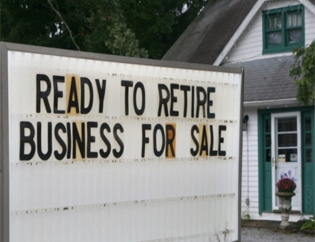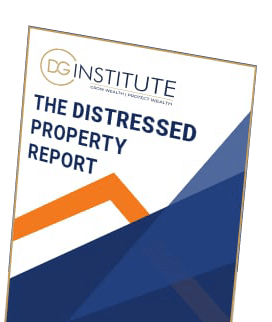Brisbane Economy to Get a Boost Amid 2032 Olympics
Published 12:53 am 23 Jul 2021

Australia will host the Olympics for the third time as Brisbane has won the bidding process for 2032. What does this mean for Brisbane’s economy and property market?
In a landslide vote by International Olympic Committee delegates in Tokyo, Brisbane was elected to host the 2032 Olympic Games, with 72 IOC delegates voting in favour of Brisbane and 5 voting against.
Speaking on the decision to elect Brisbane for the 2032 games, the IOC president Thomas Bach said:
“It’s a very sustainable project with a great legacy and it’s a project from a sports-loving nation and this is what it is all about, to see sports-loving Aussies facilitating the Olympic Games. I hope I can still make it till then to be there.”
The Brisbane bid was led by Australian Olympic Committee president John Coates, who also worked on lobbying for the 2000 Olympics in Sydney.
The announcement that Brisbane will host the 2032 Olympic games comes during the beginning of the highly anticipated Tokyo Olympics, after more than a year of delays due to the COVID-19 pandemic.
The delays around the Tokyo Olympics are expected to have added an extra $2.8 billion to the total cost of the event, which is estimated to now cost over $26 billion USD – making it the costliest Olympics to date.
The winner is … Brisbane!
The 2032 Olympic and Paralympic Games are coming to Australia 🙌 pic.twitter.com/ROvHMRNTIh
— 7Olympics (@7olympics) July 21, 2021
Economic benefits of hosting the Olympics
The economic benefits of hosting the Olympics are often debated, particularly as the costs involved with hosting the sporting event have continued to rise. In fact, the costs of hosting the Olympics can be so hefty that many countries have had to withdraw their bids, most recently including Budapest, Hamburg, and Rome who withdrew their bid to host the 2024 Olympics due to concerns around finances.
Tokyo will undoubtedly serve as yet another example of just how expensive it can be to host the Olympic Games, particularly under the extenuating circumstances of COVID-19.
Not only did Tokyo have to postpone the games, costing the country billions in additional expenses, but recent flare-ups of the coronavirus have meant that audiences will not be able to attend the event. This means that Tokyo won’t generate any expected revenue to come from ticket sales and tourism in order to offset the expenses of the event.
However, there are definitely benefits to being the host country for the Olympics, with one benefit being the increase in tourism that accompanies Olympic events (outside of a global pandemic). For example, in the years between 1998 and 2002, Sydney noticed a 16% growth in international tourism, two years before and after the Games.
During this period, Westpac Business Bank’s Chief Economist, Besa Deda said that “The 2000 Sydney Olympic Games were estimated to inject around $6 billion into the Australian economy.”
Though perhaps more beneficial than the increased tourism and global recognition that comes with hosting the Olympics is the kickstart it provides to local infrastructure projects.
Barcelona, for example, hosted the Olympics in 1992 and was estimated to have built 50 years worth of infrastructure in the 8 years preceding the Olympics.
This boost to infrastructure is a benefit that Queenslanders can look forward to, says Brendan Lyon at KPMG Australia:
“[Queensland] is seeing huge population growth, but they’re not bringing with them new motorway lines, a new hospital capacity or other social infrastructure that’s needed.”
“It’s a complex task for political leaders and a complex task for the community to understand trade-offs because governments don’t have a huge amount of discretionary spend,” continued Lyon.
“A burning platform is a really good way to focus everyone on the outcome, and something like an Olympic Games is a much more positive burning platform than having a genuine crisis.”

Brisbane residents celebrating the news that they would be hosting the 2032 Olympics.(AAP: Jason O’Brien)
Third time’s a charm for Australia
Brisbane will be the third city in Australia to host the Olympic Games after the sporting event was held in Sydney in 2000 and Melbourne in 1956. Alongside the United States, the election of Brisbane to host the 2032 games makes Australia the second country to have hosted the Olympics three times.
Brisbane will have a tough act to follow in 2032, given that the 2000 Sydney Olympics was broadly considered a major success, often referred to as the “Best games ever.”
However, the Sunshine State already has a lot going for it in the lead-up to the 2032 games.
Brisbane was able to win the bid for the Olympics in part due to its commitment to sustainability, having contractually agreed to hosting a “climate-positive” event.
Additionally, Queensland already has roughly 80% of the infrastructure required to hold the event, due to the Gold Coast having hosted the 2018 Commonwealth Games. This existing infrastructure will allow the Sunshine State to reduce the costs involved with establishing the event.
It’s estimated that hosting and setting up the games will cost $5 billion, of which ticket sales, sponsors and the IOC are predicted to cover $2.5 billion.
While $5 billion is no small sum, it is less than a quarter of the projected costs of the Tokyo Olympics, which currently sit well above USD $20 billion.
Furthermore, according to a KPMG, Australia stands to gain an estimated $17.61 billion worth of potential benefits nationwide by hosting the Olympics. The Chief Economist of Westpac, Besa Dada has arrived at similar figures, stating:
“In the case of the 2032 Games, it is possible we will see at least $17 billion of economic and social benefits for Australia, with around $8 billion of that flowing into Queensland.
The Queensland Government’s Olympic and Paralympic Taskforce estimates that the event could create 130,000 direct jobs, including 10,000 during 2032.
Time to buy property in Queensland?
While the Brisbane Olympics are more than a decade away, property investors would be wise to pay attention to Queensland’s property market, as large-scale developments will occur in the lead up to the sporting event, including property development for athlete villages and improvements to transport efficiency across the state.
University of Queensland tourism and events expert, Judith Mair, has said that “Infrastructure improvements, road transport improvements, public transport improvements that might have been in the 30-year plan for the city can be brought forward so they’re ready in time for the Olympics.”
The upcoming improvements to Queensland’s infrastructure, some of which can be found here, will help to not only stimulate job growth but also boost the property values of the areas being improved.
Areas such as Woolloongabba, where much of the Olympic activity will occur, and North Hamilton, where the Olympic Village will be built, are prime locations for an uplift in property values.
This is because there is a positive correlation between improved infrastructure and jobs growth and rising property values, as CoreLogic’s Asia-Pacific Research Director Tim Lawless identifies:
“Large infrastructure projects tend to have a positive influence on housing prices, with the extra requirement for workers creating additional demand for housing during the construction process.”
“Large projects also tend to leave a legacy of a permanent housing demand uplift, either through additional employment or via other benefits such as improved transport options and travel efficiencies related to transport infrastructure projects as well as additional amenities introduced to the area including social and retail outlets.”
All in all, the 2032 Olympics in Brisbane will see many improvements to Queensland’s infrastructure that will remain in place long after the Olympics are over, which will undoubtedly boost property values across the city and throughout the state.
You May Also like to Read
Why Australia Will Never Build Enough Homes
Welcome to this week's edition of the Property Edge newsletter. As we navigate through a rapidly evolving property...
Unlocking Potential: Uncovering Hidden Gems in Australia’s Property Market
Welcome to this edition of Property Edge, where we delve into the latest trends and insights shaping the Australian property...
Suburbs on the Rise: Property Searches Indicate Growth Potential
Welcome to the latest edition of Property Edge, where we delve into the dynamic world of real estate. In this issue, we...
Builder Insolvencies Threaten Government’s Housing Target
Welcome to this week's edition of Property Edge, where we delve into the current state of the property market through the...
Foreign Investment In Australia’s Residential Real Estate Is On The Rise
Welcome to this week's edition of Property Edge, where we delve into the latest trends and developments in the Australian...
How Far Australian House Prices Have Soared Above Fair Value
Welcome to the latest edition of Property Edge, your definitive source for insights into Australia's dynamic real estate...












